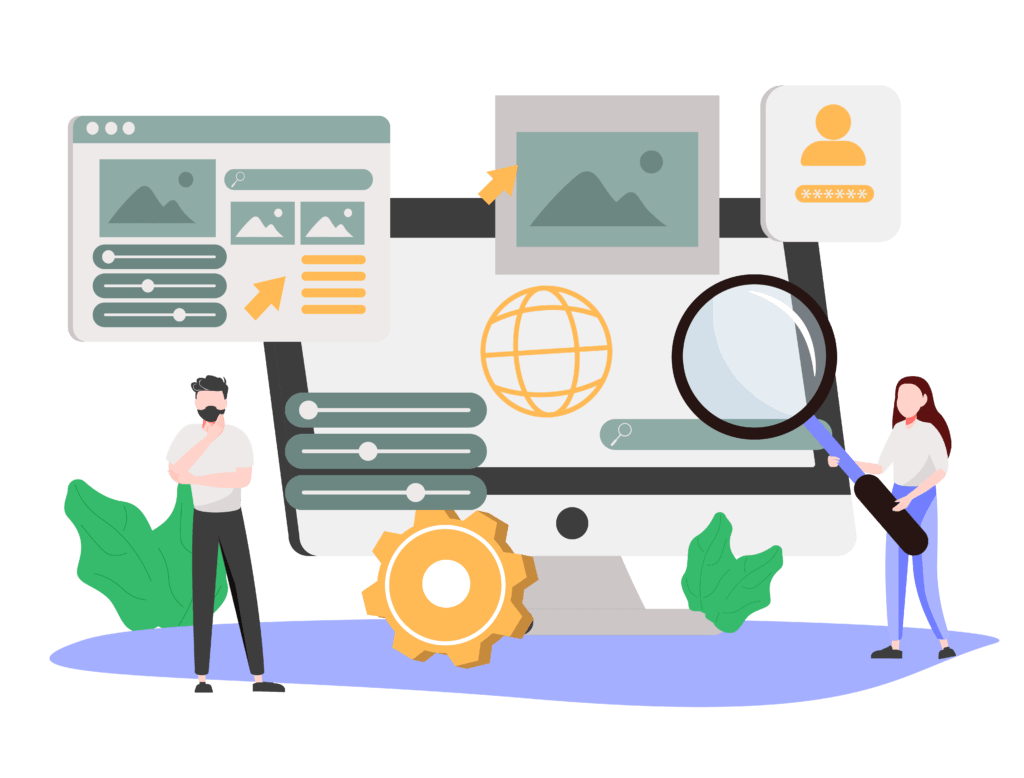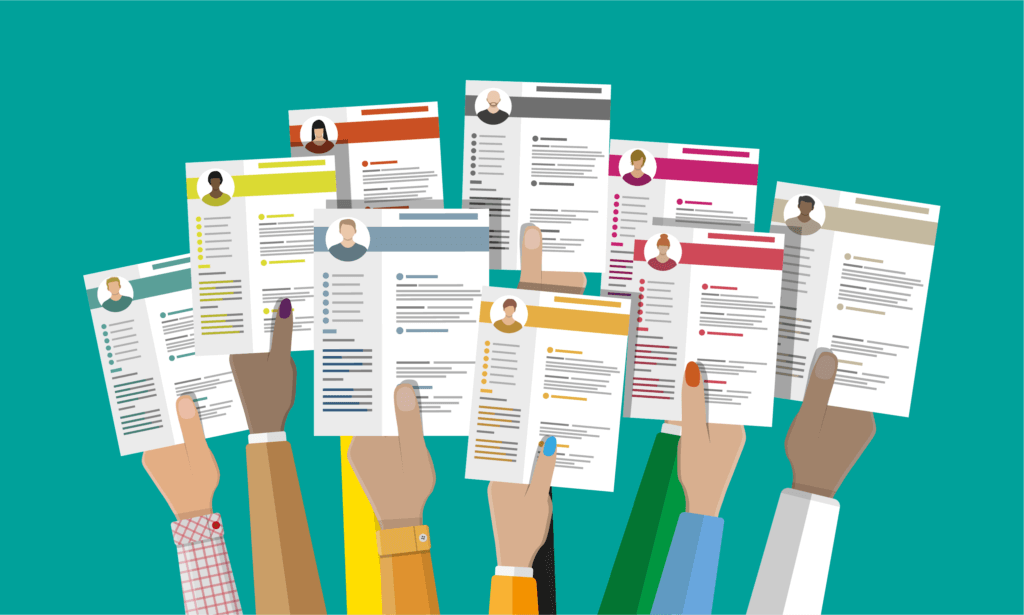See what API testing solution came out on top in the GigaOm Radar Report. Get your free analyst report >>


See what API testing solution came out on top in the GigaOm Radar Report. Get your free analyst report >>
Jump to Section
Are you looking to move into the world of automated software testing as a QA engineer? Here's a list of top questions and answers that you need to know about the role.
Jump to Section
Jump to Section
When it comes to quality assurance interview questions for software testing, knowing the “right” answers can be simple or subjective. Moreover, interviewing for a new job is always an involved process that can stress some people out. This can lead to subpar performance during in-person interviews for quality assurance positions, development team roles, project manager, and more.
But preparing ahead can get you comfortable when it comes time for the actual testing interview questions. This article will cover what software QA engineers do, common quality assurance interview questions and answers, as well as answer the following questions and more:

Quality assurance engineers (or QA Engineers) provide support to software development teams when it comes to application creation, application testing, implementation, and troubleshooting. That means that they are involved in the development process from beginning to end.
They are the arbiters of a company’s standards and one of the best defenses against problems in source code or other issues with software applications and other services.
On top of being expert bug finders, QA Engineers have to be familiar with documentation. Crafting the perfect test case every time is essential, as well as knowledge of test strategies, test management tools, automation tools, life cycles, and more.
If the developer is the chef making a meal, the QA Engineer is the FDA who ensures the food is up to regulatory standards. This ensures a better overall experience for the end user—and that’s something everyone can agree is a worthwhile goal.
Depending on the area of focus, the testing phase can be broad in nature or narrowed down in scope. But the essential outcome is the same: test the functionality, search for bugs, and prevent bug leakage.
Testing activities and testing techniques will vary depending on the types of software testing. Some examples include:
The bug release step allows a QA engineer to find high priority and small issues alike. The test data itself will provide data driven and actionable insights for the development team.
QA vs. QC comes down to how they vary regarding intent. Quality assurance focuses on how you maintain quality and prevent issues where Quality Control focuses on identifying problems with the product or service.
As an example, a tester’s main duty would focus on quality control and software testing to find and report defects within the application. Whereas a quality assurance engineer would be part of the whole process of the development cycle and can try to take a shift-left approach and be proactive and try to find ways of preventing defects down the road.
Some QA tools are as simple as a requirement traceability matrix. These requirement documents assure that a system’s defined requirements get linked and tested throughout the verification process. Other examples would include test management software or programs that facilitate QA testing such as automated testing tools.
Automation plays a big role in software testing in tandem with the continued importance of manual testing, as well. Test scripts may come into play—especially for regression testing.

You might ask yourself something like “Is there a QA job interview tutorial or walkthrough?” The short answer is yes, but every interview will be different. Each company will have their own interview processes, requirements, and approaches. Though you cannot predict what they will do, you can prepare for many scenarios on your end.
But the bottom line is that you should be confident and, regardless of what your intentions are for your future career, let your possible employer think this is where you want to be—especially during the interview process.
How long a QA interview takes depends on a variety of factors. For instance, is this a first round or last round interview? Are you applying for an entry level position or one of the most senior roles available?
You also can’t predict interview length based on how likely or not you are to get a job. The company may conduct very thorough interviews regardless or have one as more of a perfunctory task for someone they feel is best for the role. However, experience for senior vs. associate level QA engineers definitely plays a part.
As an interviewer, I often see associate level engineers who haven’t quite found their footing yet. They understand the concept of QA and that it entails testing, but there are so many different types of testing available.
If an associate level engineer candidate doesn’t enrich their knowledge with different methodologies in testing (such as acceptance, system, integration, usability, performance, load, and other testing), this makes them a less appealing candidate. To me, this is just part of being prepared for an interview and understanding the field that is software QA.
When I interview a senior level engineer and I ask them a technical question, I expect a detailed response to the question. Many times, I get a high level response instead which, to me, signals that they don’t have the experience I’m looking for.
As an interviewee, I would try to add as much detail as possible when answering technical questions. When asked about automation, talk about the framework, share what methods you had to develop to work around issues with maintainability, discuss troubleshooting items you had to resolve, and so on.
The more details, the better. After all, the interviewer can stop you and redirect you if you get into too much detail.

You don’t need to be an incredible wunderkind or world-famous expert to prove your worth to a potential employer. Many times, an employer wants someone who fits the team and is willing to apply themselves even if they don’t tick all the boxes for a position.
A willingness to grow, learn, and push themselves is the best quality for QA job candidates. It’s fine if this particular position may only be a stepping stone for your career, but don’t let your interviewer know this.
The company is about to invest thousands of dollars into you. Don’t start off with… “I think this is where I want to be.” You’ll never get hired that way. I myself wasn’t sure I was going to stay in QA, but here I am—15 years later and I’m still in this field. You never know what the future holds, so be confident and give this field a shot since you never know what can happen once you’re in it.
Every position has its bare minimum benchmarks that every candidate should meet. Generally, anyone who wants to be a QA engineer candidate should have:
But more than that, a great candidate needs to have the right kind of resume. Even if you pass the automated resume checker, you’ll need the right information and the right amount of information, too.
Following the KISS method (Keep It Short and Simple) is a great general rule when writing resumes of any kind. Too often, interviewers receive resumes of three pages for lower level positions. While two page resumes are okay for senior level positions, three or more can diminish your chances of getting the QA job you want.
Some essential QA Job Resume best practices are:
Try not to have too many gaps or bounce from one employer to another. These both stand out as warning signs to interviewers. It’s recommended that you tailor your resume to every job you apply for to maximize your opportunity at getting an interview.

Identifying the most common questions in QA job interviews is deceptively simple. You have general questions that are asked at every interview like “Where did you go to school?” However, you’ll also get more pointed questions asking about your general knowledge base and hypothetical questions, too.
Let’s break down the different categories of question types, example questions, and example answers you could give during a real interview.
All job interviews ask basic questions to get a sense of a person’s work ethic, personality, and experience. The same goes for any interview for QA jobs, QA leads, or other testers in the software industry.
Some general QA interview questions include:
Many of these will have simple answers such as your university, major, and previous job experience. But others—such as your greatest strength and weakness—will require more introspection and consideration on what information to include or omit.
Moreover, testing teams are just that: teams. Whether juggling multiple projects or managing an entire team, an interviewer wants to get to know your personality when it comes to the workplace. So when they ask, “why should we hire you?” your answer should come from the heart as it applies to a professional workplace.

Everyone with a basic understanding of math can answer the question “What’s 2+2?” These questions are essentially on that level of simplicity when it comes to the role of a quality assurance engineer. For example, if you were applying to be a chef in a high-end restaurant, they would expect you to have your own knife set or know how to make poached eggs.
Consider these questions to relate to the backbone of QA testing responsibilities. You should be able to answer them with ease due to how intrinsic they are to the job at hand.
But these only cover very simple, narrow-focus intent questions. Other categories of questions branch out into more tool specific, language specific, or company specific avenues. Prepare for these QA interview questions and answers by knowing the types of questions that will be asked.
Testing is the job along with detailed documentation, bug identification, and more. When interviewers ask these kinds of testing interview questions, provide short and sweet responses that display your knowledge without becoming needlessly overdrawn.
Depending on the nature of the interview such as a C++ interview, PHP interview, Selenium interview, or Java interview, you can also tailor your responses to fit those intents.

Automation and Agile testing have become crucial parts of most development workflows. Incorporating continuous testing is just one of many cards in the mental roll-o-dex of a modern QA tester.
An interviewer might ask questions like these related to the subject:
Though automation is key, manual testing remains a necessary part of the process, too. Draw upon your previous experience or review things like implementing QA in a CI/CD pipeline to best prepare yourself.
Though these interview questions feel general, interviewers use them to gauge your confidence with overall QA testing best practices. Some examples are:
Luckily, by preparing for the other question categories, you’ll be able to pass over these hurdles with ease.

Another aspect of interviews will always be “what if” or hypothetical questions. These types of queries will always have you draw upon that knowledge base you have to answer the question in a way the interviewer finds satisfactory.
In a sense, that means that there is no “right” or “wrong” answer, but that’s not entirely true. The wrong answer is the one that fails to showcase a candidate’s expertise. Prepare ahead of time by asking yourself questions like these:
Let’s look at some example answers for a few of these questions.
Don’t be shy when answering a question like this; there are clear signs when testing plans and individual tests go awry. The best option here is to pick a specific example from your career and transition from describing generic signs to what specifically piqued your QA sensibilities in that situation.
Tailoring your answer to the specific company for this kind of question is crucial. If you are applying for a QA job at a security software company, the answer will be very different than if you are applying to QA for a medical device company.
Consider the scope of the position, as well, when determining your answer.
This kind of question falls somewhere between all of the question categories. But this is where you can showcase the traits that make you the right software QA engineer for this job!
Don’t skimp on details about a past similar experience, your documentation preferences, and how you might voice your doubts constructively.

One of the most important parts about acing a QA job interview isn’t necessarily having tons of experience or a particular degree from a specific university. It’s about how you handled stress testing for a soon-to-launch product. Or how you integrated automation tools into your workflow for improved testing life cycles.
Preparing answers to these questions ahead of time will help you appear as educated, experienced, and informed as you truly are. Examples of common open-ended interview questions are:
Let’s look at some example answers for a few of these questions.
All kinds of tests come into play when considering software quality assurance jobs. You could name test management tools, smoke testing tools, or even a simple program that helps you and your QA team stay organized.
While there are some obvious answers to this question, you can tailor it to the company, too. For instance, if you’ll mainly be working with web services or web APIs, you might mention Selenium testing tools. Another instance may require SQL or Android related tools. It all revolves around the company’s products and services.
Especially when interviewing for a QA lead job, you’ll need to display your variety of knowledge. Verification and validation both fall into the “quality control” category, but there are four widely regarded methods in use today.
This kind of question will clue interviewers into what kind of work ethic you have. That means that it is important to be the right kind of candidate and select a project where you grew professionally.
Ultimately, you will have to decide from your experience pool which project fits these parameters.

Parasoft is all about making everyone’s lives easier in the realm of development. From writing the best test cases to performing regression testing and webinars for all topics, Parasoft is constantly providing content to keep industry professionals up-to-date and informed.